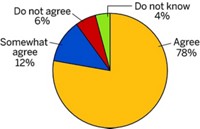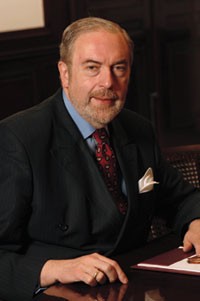Advertisement
Grab your lab coat. Let's get started
Welcome!
Welcome!
Create an account below to get 6 C&EN articles per month, receive newsletters and more - all free.
It seems this is your first time logging in online. Please enter the following information to continue.
As an ACS member you automatically get access to this site. All we need is few more details to create your reading experience.
Not you? Sign in with a different account.
Not you? Sign in with a different account.
ERROR 1
ERROR 1
ERROR 2
ERROR 2
ERROR 2
ERROR 2
ERROR 2
Password and Confirm password must match.
If you have an ACS member number, please enter it here so we can link this account to your membership. (optional)
ERROR 2
ACS values your privacy. By submitting your information, you are gaining access to C&EN and subscribing to our weekly newsletter. We use the information you provide to make your reading experience better, and we will never sell your data to third party members.
Policy
CEFIC Revamps
European chemical council's new president aims to bolster innovation
by Patricia Short
October 16, 2006
| A version of this story appeared in
Volume 84, Issue 42
Following a hasty rescheduling away from the political turmoil of Budapest, the European Chemical Industry Council (CEFIC) turned to business at its annual meeting in Brussels late last month.
At the top of the agenda: implementing a new structure for CEFIC, one designed to support innovation in the chemical industry and, more widely, the entire Western European economy.
The association's newly elected president, François Cornélis, raised the flag of "innovation and competitiveness" at the CEFIC meeting, declaring it the theme of his two-year term.
"Our European chemical industry needs to be extremely innovative to remain competitive. In association with authorities and governments, we will find the proper conditions for the development of our industry in a healthy worldwide competition. We want to serve the public and to ensure economic prosperity in Europe in a sustainable way," said Cornélis, president of the chemicals arm of France's Total.
The pan-European organization's revamped structure tweaks the way the industry's various groups work together. In particular, it is intended to more clearly define the roles of the industry's constituent parts, including national chemical federations and associations, chemical producers ranging from multinationals to small- and medium-sized enterprises, focused sector-specific trade associations, and CEFIC itself.
At the same time, CEFIC is leading a program to trim and tightly control the chemical industry's spending on lobbying and related activities. According to Cornélis, the industry has set an objective to reduce trade association costs roughly $36 million by 2010. Some 60% of the cuts will come from the different national federations, he said, and the remainder from CEFIC.
Among ways that CEFIC will support the European Union's drive for competitiveness, said CEFIC Director General Alain Perroy, will be participation in the High-Level Group on the Chemical Industry now being organized by the European Commission. This group will consist of EC representatives, ministry officials from major chemical-producing countries in the European Union, and industry chief executive officers.
Among its concerns will be broad issues such as energy and feedstocks, innovation, and infrastructure. The group is expected to be formed by the middle of 2007, "immediately after REACH goes into effect," Perroy said.
REACH—the EU's proposed program for registration, evaluation, and authorization of chemicals—is widely expected to go into effect early next year. A second round of debate began early this month in the European Parliament, and votes there and in the Council of Ministers are expected to okay the program by mid-December.
"REACH has for years been the driving activity of CEFIC, and will continue to be an important topic in its priorities," Cornélis said. Although he expects REACH to clarify chemicals management and put an end to piecemeal legislation, he warned that implementing it will be difficult. "The challenges the European chemical industry and CEFIC are facing are considerable," Cornélis said.





Join the conversation
Contact the reporter
Submit a Letter to the Editor for publication
Engage with us on Twitter